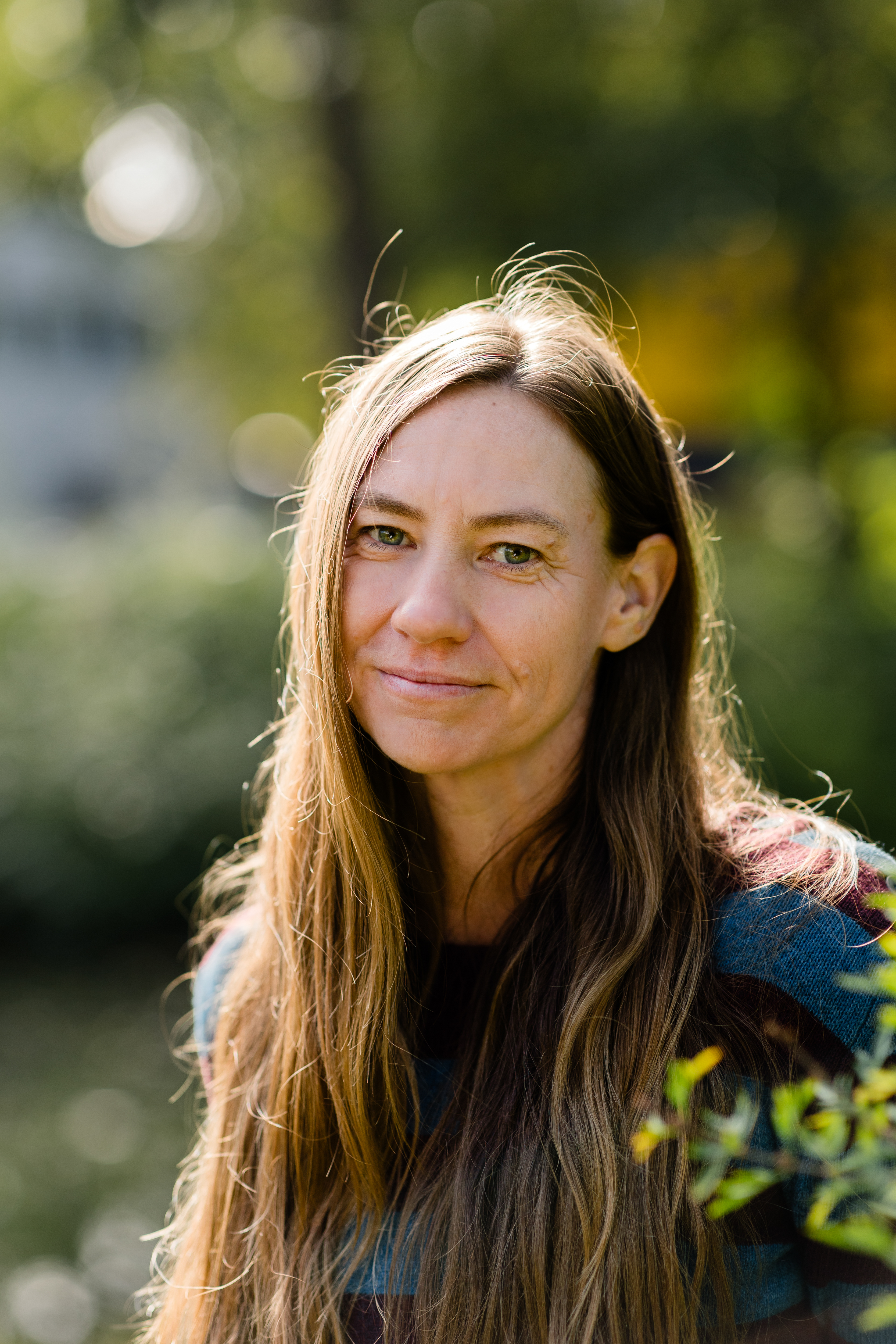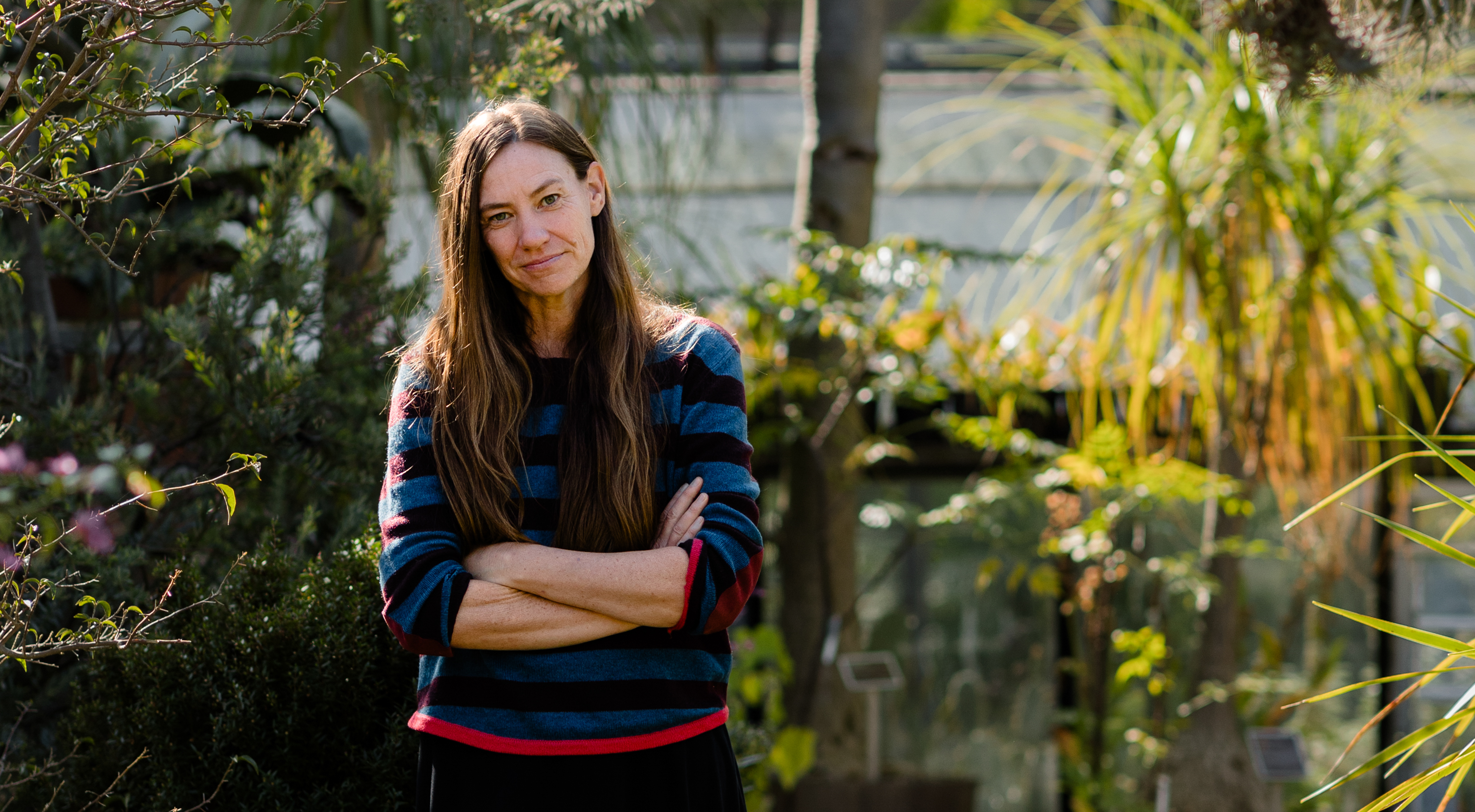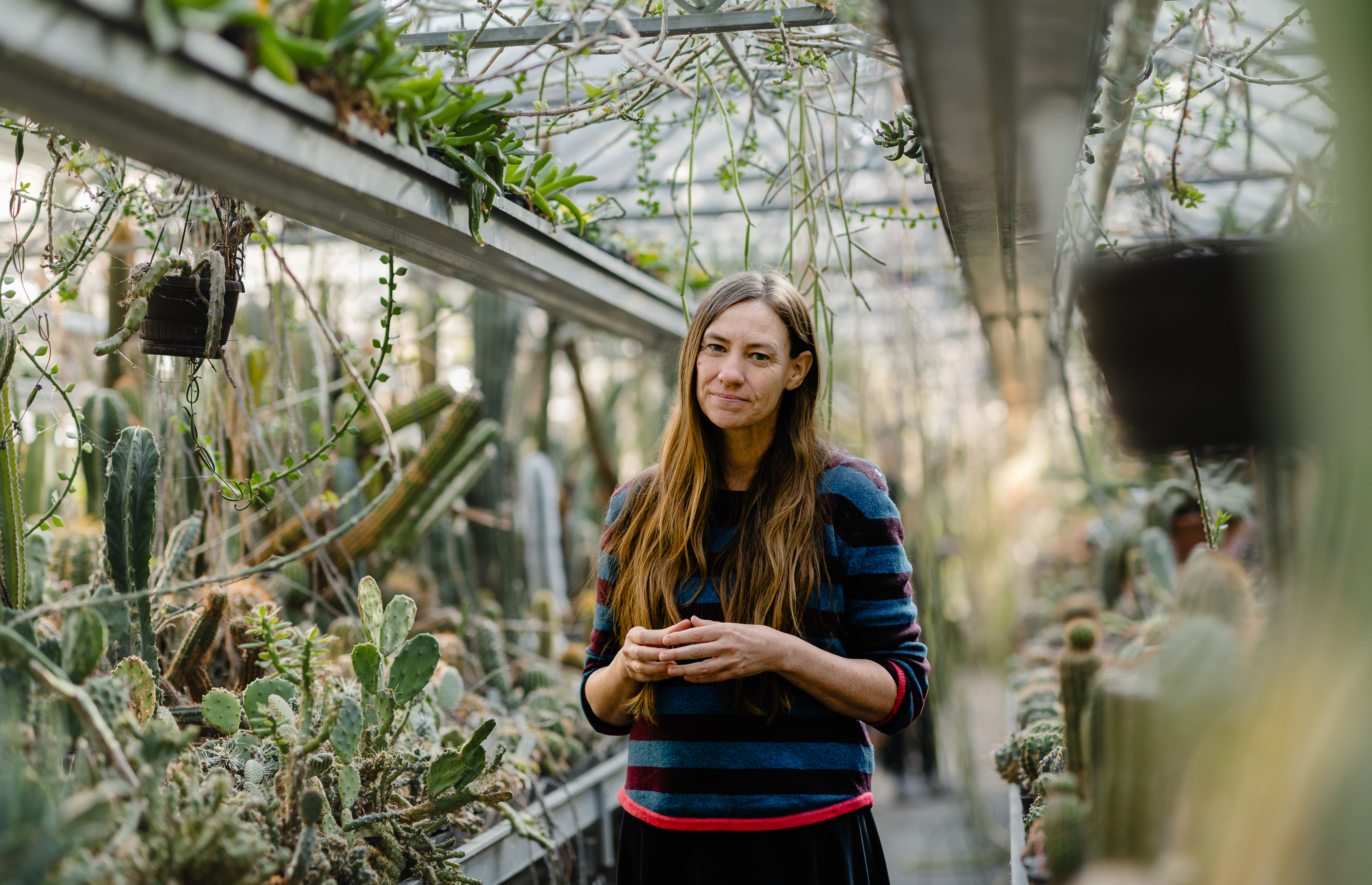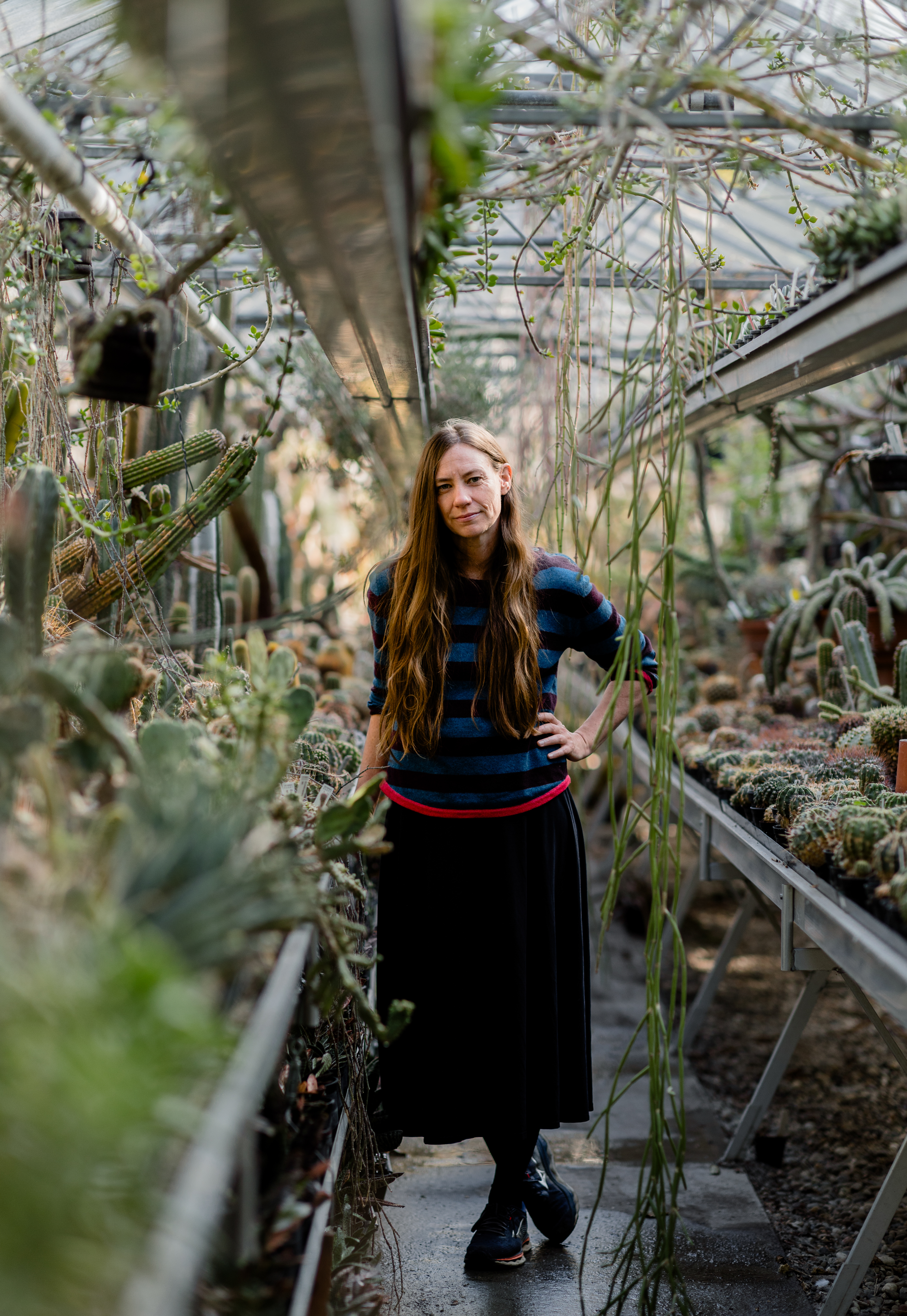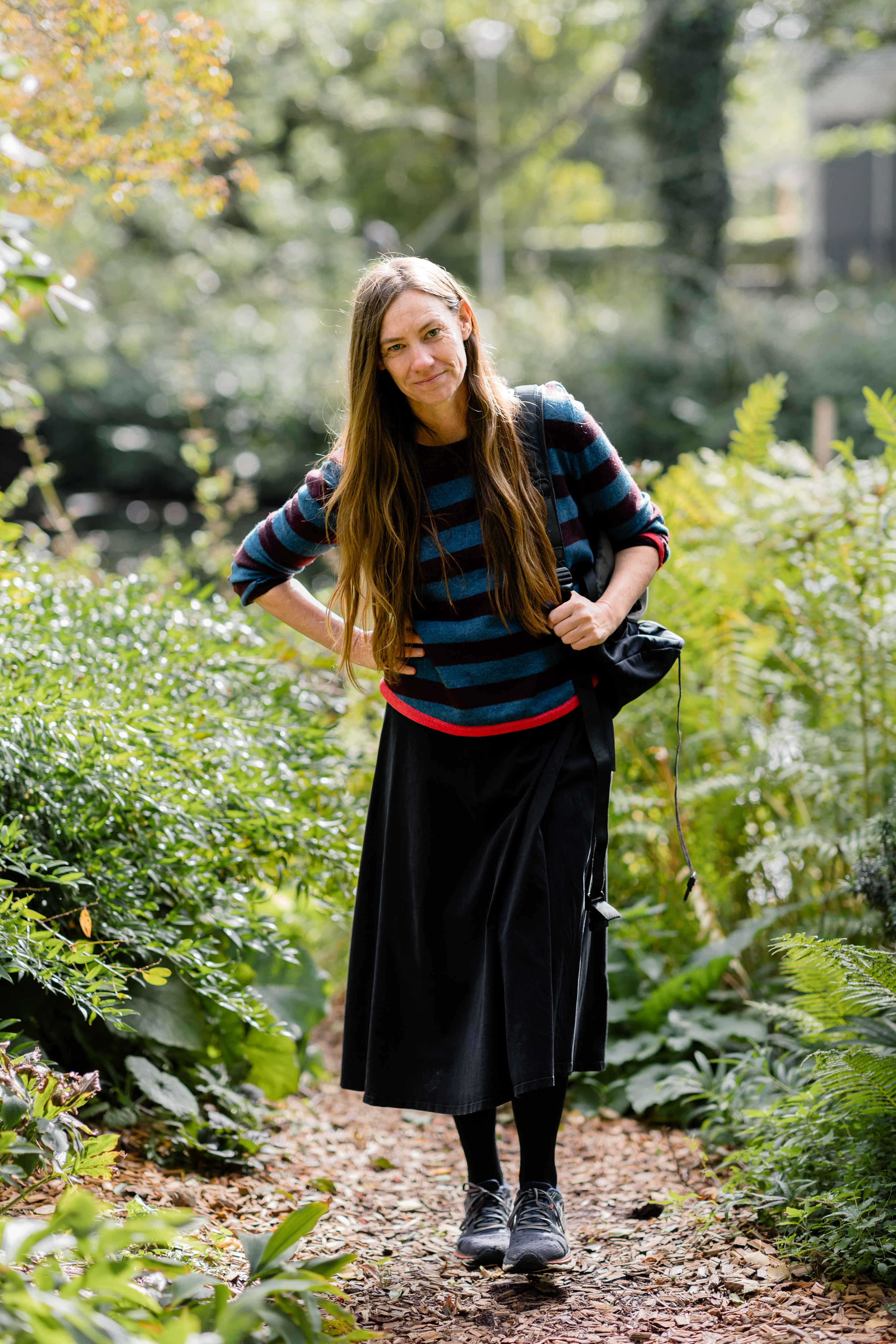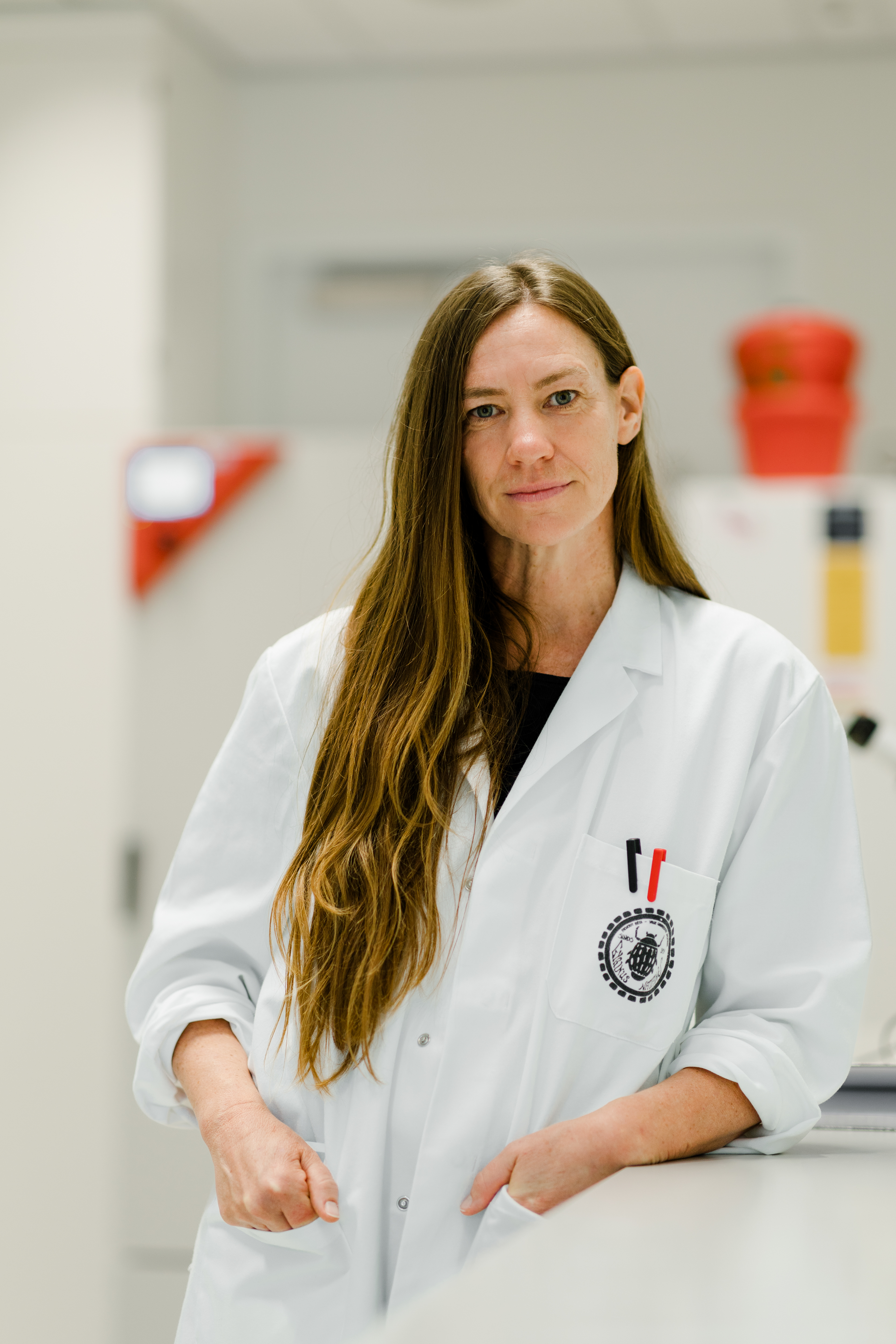About Toby's Work
Toby Kiers is an evolutionary biologist investigating symbiotic partnerships between plants, fungi, and other microbes. She illuminates the evolutionary mechanisms underlying cooperation between species as well as the role of plant-microbe mutualisms in ecosystem health. Kiers’s research shows that microbes are not passive accessories to plants but powerful actors in their own right.
In early work, Kiers demonstrated how legumes punish cheater or noncooperative bacteria. Leguminous plants rely on rhizobia bacteria in root nodules to fix or convert nitrogen gas into a form the plant can access. In experiments, Kiers used a nitrogen-free environment to force rhizobia bacteria to cheat, showing that legumes withhold oxygen from noncooperative nodules and suffocate those bacteria that failed to provide resources to their hosts. In addition, the severity of the punishment correlates to the underperformance of the bacteria. Through this system of “sanctions,” legumes ensure rhizobial cooperation. Kiers’s subsequent work focused on tracking resource trade between plants and the mycorrhizal fungal partners that colonize their root systems. About 80 percent of plants get essential nutrients from fungi; in return, plants supply fungi with carbon compounds necessary for fungal growth and survival. Kiers and a biophysics collaborator utilized tools like stable isotope probing; high-resolution, robotic imaging; and fluorescent quantum dots to follow the movement and transfer of nutrients across complex networks of roots and fungal hyphae (the branching structure of fungus). They tracked and manipulated the exchange of resources between plants and fungi and found a two-way system of trade analogous to a market economy. Plants and fungi maintain stable and fair resource exchange by sharing or withholding resources according to the trading partner’s performance. Kiers also demonstrated plants and fungi reward or punish trading partners with precision. Plants can allocate carbon to a specific fungus species even when multiple different species are closely intermingled within a single root. Likewise, fungi move nutrients in both directions along their hyphae to strategically manipulate carbon payoffs from plant partners.
In 2021, Kiers co-founded the Society for the Protection of Underground Networks (SPUN) to map and protect the Earth’s underground fungi. SPUN informs the public and policymakers about the importance of fungi to planetary health and advocates for conservation of fungal networks. Through SPUN, Kiers collaborates with local researchers around the world to map underground fungal communities and explore how human activity and climate change are impacting fungal biodiversity, the ability of fungi to draw carbon into soil, and agricultural productivity. Kiers is solving a longstanding evolutionary puzzle about how and why organisms cooperate in nature and protecting plant-fungal symbioses—one of the most important and widespread mutualisms on Earth.








